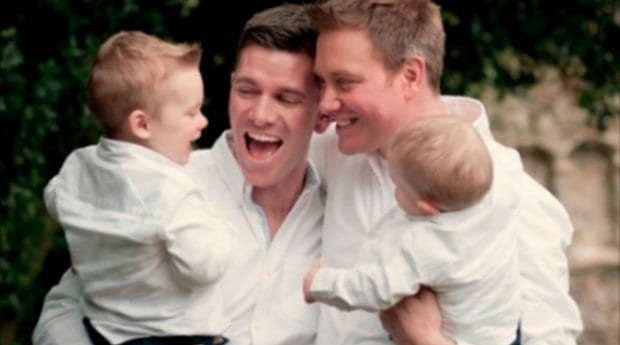Though it was the first Australian jurisdiction to establish women’s right to vote in the late 1800s and to decriminalize homosexuality in the 1970s, South Australia may be one of the last to recognize adoption rights for gay couples, says Tammy Franks, a Greens member of the state’s Legislative Council.
“We’ve rested on our laurels,” she says. “We talk about our history, but we haven’t been keeping up that progressive history that we have by leading the way.”
Franks is now working with a number of couples in a bid to ensure they benefit from legal protections.
In 2011, a cross-party social-development committee recommended, among other changes, that South Australia’s adoption laws should include gay couples. But three years hence, there has been no action on those recommendations — except one to recognize all three parents on the birth certificate when a lesbian couple uses a sperm donor.
The South Australia government is currently reviewing the state’s adoption laws, and Franks has promised to push for the inclusion of gay couples in any proposed amendments. Franks also says she plans to spearhead a private member’s bill proposing the inclusion of adoption rights for same-sex couples.
“I can get it debated in the upper house where I am; it’s a bit more difficult to get things on the notice paper and debated in the lower house. I’ll have to get somebody in that [chamber] to sponsor the bill as well,” she explains.
That there has not been a comprehensive review of the state’s laws since the late 1980s makes no sense to Shaun Douglas-Galley and his partner, Blue, who moved with their two young sons to South Australia from the United Kingdom almost a year ago.
“The driver behind that was a sense of increased well-being for our children, but you get there and worry that your family is not recognized and their welfare is not fully complete,” Douglas-Galley tells Xtra. “In the United Kingdom it’s accepted, it’s legal, and actually we started to really question and ponder about our future, about how it will be for our boys growing up in a community where, yes, there’s always going to be stigma potentially, but we are essentially outside the law.”
Douglas-Galley has initiated a change.org petition to galvanize support for legalizing adoption for same-sex couples in the state. The petition has garnered more than 13,300 signatures as of Sept 18.
“You’re talking about some of the most vulnerable children, and surely regardless of the same-sex component of it, an act like that should be reviewed more regularly,” he contends.
At the federal level, the laws recognize same-sex parents in the areas of social security, child custody and maintenance, Franks says. “That hasn’t been controversial at the federal level with the general public,” she says but notes that some states have some catching up to do.
“Often, there just needs to be a reason or a groundswell or a campaign to get it on the agenda,” Franks says. “Government won’t necessarily go out of its way to put it on the agenda.”
Franks notes there is some opposition from a group called Family Voice, which lobbies parliament. “They’re quite visible; they’ll come in and lobby not only individual members, but they’ll come into the gallery when one of these issues is being debated.”
Douglas-Galley says that while his new home does feel “a bit conservative” and there are churches everywhere, everyone has been accepting so far.
Franks says public opinion increasingly favours the rights of same-sex couples.
“One of the strongest arguments is that these families already exist, yet because they don’t have legal rights, there’s a lot of uncertainty hanging over their children’s lives should something happen to a parent,” she points out. “There are no guarantees for that family, especially when one member of the couple is recognized and the other isn’t. If the recognized partner dies, what happens then?” she asks.
That they don’t have these legal protections in 2014 would be a surprise to most South Australians, she says.


 Why you can trust Xtra
Why you can trust Xtra


